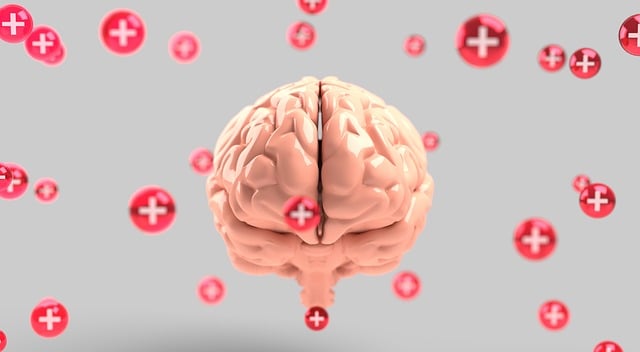Crisis Intervention Teams (CITs), integrated with healthcare, social services, and law enforcement professionals, offer vital, evidence-based support during mental health crises using programs like Broomfield Major Life Transitions Therapy (MLTT). MLTT focuses on human resilience during life changes, providing practical tools for empathy building, emotional regulation, and trauma-informed care. Regular training ensures CITs remain effective, culturally sensitive, and prepared to offer tailored interventions that promote healing and recovery in various settings, ultimately mitigating burnout and enhancing community mental wellness.
“Crisis intervention teams (CITs) are a crucial resource in supporting communities through major life transitions, offering vital assistance during challenging times. This article explores the essential role of these specialized programs, particularly focusing on Broomfield Major Life Transitions Therapy as a leading training provider. We’ll delve into the key components that make up effective CIT training, its real-world impact, and how such initiatives prepare communities to navigate life’s crises more effectively.”
- Understanding Crisis Intervention Teams: A Vital Resource for Community Support
- Broomfield Major Life Transitions Therapy: An In-Depth Look at Its Role in Training
- Key Components of Effective Crisis Intervention Team Training Programs
- Implementation and Impact: Preparing Communities for Navigating Major Life Changes
Understanding Crisis Intervention Teams: A Vital Resource for Community Support

Crisis Intervention Teams (CITs) are an invaluable asset to any community, offering swift and specialized support during moments of crisis. These teams typically consist of trained professionals from various sectors, including healthcare, social services, and law enforcement, who collaborate to assist individuals facing major life transitions or emotional distress. By integrating Broomfield Major Life Transitions Therapy and other evidence-based practices into their training, CITs are equipped to handle a wide range of mental health challenges effectively.
The role of these teams is crucial in preventing burnout among front-line workers while promoting the mental wellness of both individuals in crisis and the community at large. In today’s fast-paced world, where stress and anxiety are prevalent, having access to well-trained CITs can make a significant difference. Through regular training sessions, including Mental Wellness Podcast Series Production, these teams stay updated with the latest research and strategies, ensuring they provide culturally sensitive, effective interventions tailored to each person’s unique needs.
Broomfield Major Life Transitions Therapy: An In-Depth Look at Its Role in Training

Broomfield Major Life Transitions Therapy (MLTT) stands out as a cornerstone in crisis intervention team training programs. This evidence-based approach delves into the intricate aspects of human resilience and adaptation during significant life changes, offering invaluable insights to practitioners. Through MLTT, participants gain profound understanding of the psychological impact of transitions like loss, relocation, or major life events. The program equips them with essential tools for fostering empathy building strategies and enhancing self-awareness exercises, crucial elements in effective crisis intervention.
Incorporating mental wellness as a central theme, Broomfield MLTT provides practical techniques to support individuals navigating turbulent times. By simulating real-life scenarios and encouraging role-playing, trainees learn to respond with compassion and expertise. This immersive training fosters a sense of preparedness, enabling crisis intervention teams to offer tailored support, ultimately promoting healing and recovery in diverse settings.
Key Components of Effective Crisis Intervention Team Training Programs

Effective crisis intervention team training programs are meticulously designed to equip professionals with the skills needed to navigate and support individuals during major life transitions, a key component in Broomfield Major Life Transitions Therapy. These programs go beyond mere knowledge transfer, focusing on immersive experiences and role-playing scenarios that simulate real-world crises. Participants learn empathy building strategies, emotional regulation techniques, and crisis intervention guidance through interactive workshops and debriefings.
The curriculum emphasizes the importance of active listening, cultural competency, and trauma-informed care. By integrating these principles into the training framework, professionals gain a deeper understanding of the complexities involved in supporting individuals experiencing distress. This holistic approach not only enhances their decision-making abilities but also fosters effective communication and builds strong crisis intervention teams capable of making a tangible difference in people’s lives.
Implementation and Impact: Preparing Communities for Navigating Major Life Changes

Crisis intervention team training programs play a pivotal role in preparing communities to navigate major life changes and transitions, such as those experienced in Broomfield Major Life Transitions Therapy. By equipping individuals with essential skills in emotional regulation, stress management workshops, and self-esteem improvement, these initiatives foster resilience among community members. The impact extends beyond individual growth; it strengthens the social fabric by enhancing collective coping mechanisms during challenging times.
Through comprehensive training, crisis intervention teams become the cornerstone of support networks, ensuring that individuals facing life alterations receive timely assistance tailored to their unique needs. This proactive approach not only mitigates the adverse effects of significant transitions but also empowers participants to embrace change with enhanced confidence and adaptability.
Crisis intervention team (CIT) training programs, such as those offered by Broomfield Major Life Transitions Therapy, play a crucial role in equipping communities with essential tools to support individuals facing major life transitions. By focusing on key components like empathy, de-escalation techniques, and cultural sensitivity, these programs empower CIT members to effectively navigate crisis situations. The implementation of well-structured training has a profound impact, fostering better mental health outcomes and strengthening community resilience. In today’s digital era, recognizing the value of CITs is not just important; it’s vital for building supportive and adaptable communities.














